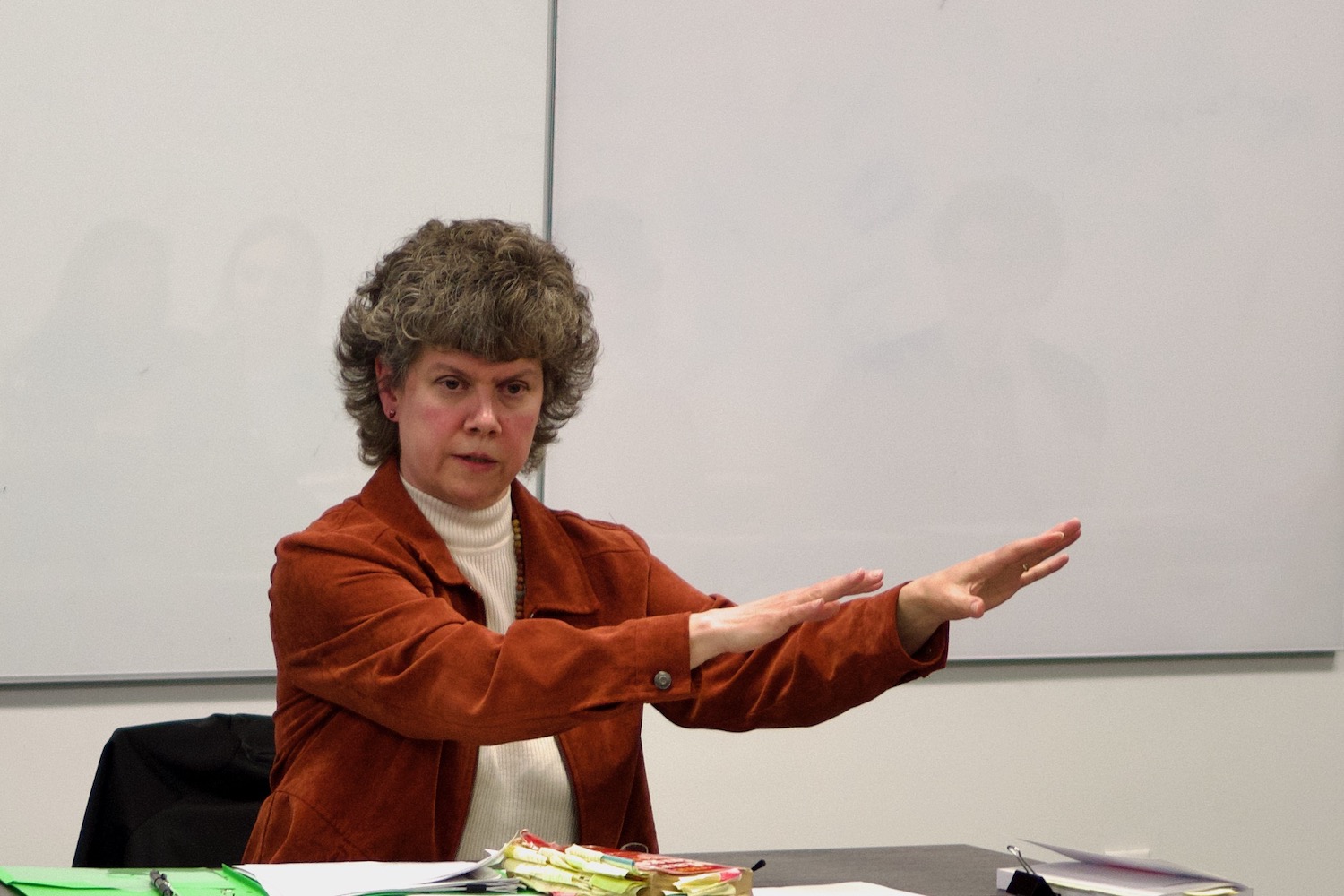 Menu
Menu

One of the most popular new courses at the University of Dallas is Solzhenitsyn’s Gulag Archipelago, taught by Associate Professor of Politics Tiffany Miller, PhD.
Miller has spent over two decades at the University of Dallas teaching a variety of wide-ranging political philosophy classes. Her own research interests include American progressivism and the influence of German idealism on American politics.
However, in seeking to understand modern American political thought, Miller began investigating the foreign — specifically, Soviet — effects of 20th-century Marxism more closely.
“I began to realize that in order to understand what was happening in the United States in the 20th century, I needed to learn more about Marx and Engels and the application of Marxist thought in Soviet history,” Miller said.
Miller’s course investigates the effects of Marxism on both man and society through The Gulag Archipelago, Aleksander Solzhenitsyn’s multi-volume history and “literary investigation” into the network of Russian prison labor camps.
The Gulag Archipelago is Solzhenitsyn’s most famous work, written in secret and smuggled piecemeal through the literary underground before publication in the West.
However, the text is not a simple history, and it evades easy genre classification.
“The book is so much more. It is a profound account of Solzhenitsyn’s change of mind, moving from a purified Leninism to, at the end of his 11 years, identifying as a Christian,” says Miller.
Solzhenitsyn interweaves his own experience in the camp with the political and historical narratives of the gulag, bringing in a “bewildering” number of different characters. As Miller characterizes the book, “Solzhenitsyn is trying to recover the genuine diversity in the human soul from the very crude, reductive, Marxist way of categorizing people.”
There has been a noted revival of interest in The Gulag Archipelago in recent years. Popular psychologist Jordan Peterson has promoted a recent abridged edition that has made the text more accessible to general readers, and Solzhenitsyn’s brief A Day in the Life of Ivan Denisovich, a one-day account of gulag life, has found popularity in classical school curricula nationwide.
Dr. Miller says that some of the revived interest arises from a Western world still grappling with the legacy of communism.
“The West was too quick to congratulate itself that communism was over after the wall fell,” Miller said. “There is a growing sense that it’s not, and we can learn a lot from its dissidents.”
Catherine (Schwenk) Gramling, BA ’22 MA ’25, took the course with Dr. Miller in the fall of 2021 and was fascinated by the layers within the text.
“This is a book where you can have a political reading that communism is evil, but the lesson that stretches beyond communism is that there is the capacity inside every human being to do terrible things to each other,” Gramling said. “It runs deeper than politics.”
Solzhenitsyn is a firmly modern author, living well into the 21st century, but there are already questions about what his place will be in the canon of great books. Gramling notes that The Gulag Archipelago interacts with many authors of the Western tradition, such as Plato, and reflects on questions of perennial importance to man.
“I can’t predict how he will be thought of in the future, but he ought to be,” Gramling said. “His writings are a profound reflection on human nature and man’s relationship to God. He’s dealing with the key themes of what the works of the canon address.”
Dr. Miller currently plans to offer the course every other year, with the next offering likely in 2025.
Joe Toates is a Dallas native and freelance writer currently earning his master’s in humanities with a concentration in classical education in the Braniff Graduate School. He studied history at Hillsdale College and currently serves as an educator in Detroit, Michigan. He enjoys reading, writing and helping his students do the same.